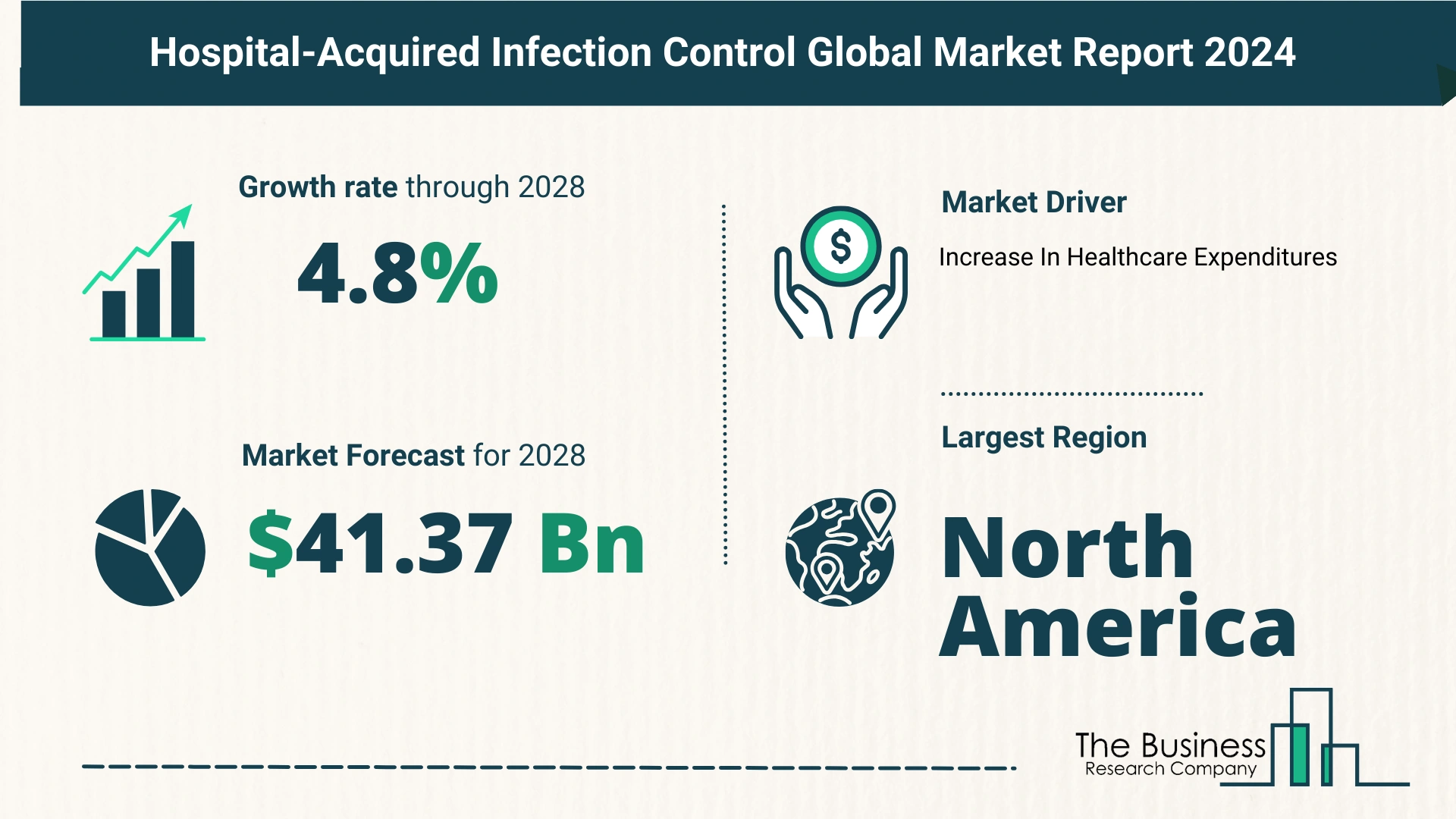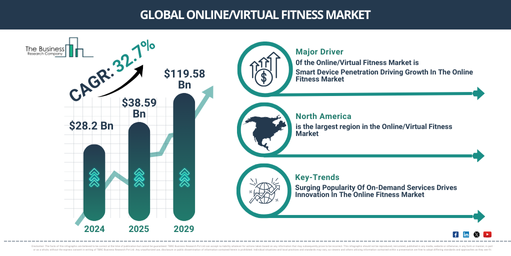Hospital-Acquired Infection Control Market Forecast Until 2033 – Estimated Market Size And Growth Rate
The Business Research Company’s market reports offer an in-depth analysis on the market’s growth potential, major drivers, key trends and more.
The hospital-acquired infection control market is witnessing steady growth, primarily fueled by increasing healthcare expenditures worldwide.
- Hospitals are allocating additional resources for advanced infection prevention technologies.
- Rising healthcare spending, as evidenced by statistics from the UK, drives investment in preventive care and innovative solutions.
- The market is poised to benefit from heightened focus on infection control measures, supported by increased financial allocations.
Technology’s Pivotal Role in Market Advancement
Technological advancements play a pivotal role in shaping the hospital-acquired infection control market landscape.
- Major companies are leveraging technology to develop innovative solutions for infection prevention.
- Machine learning and whole genome sequencing enable rapid detection of infectious disease outbreaks in healthcare settings.
- Technological interventions enhance surveillance capabilities and facilitate early detection and containment of hospital-acquired infections.
Read More On The Hospital-Acquired Infection Control Market Report 2024 – https://www.thebusinessresearchcompany.com/report/hospital-acquired-infection-control-global-market-report
Steris Corporation’s Strategic Acquisition
Steris Corporation’s acquisition of Cantel Medical underscores the market’s dynamic nature and strategic consolidations within the industry.
- The acquisition expands Steris’s product portfolio and global reach, strengthening its position in infection prevention.
- Cantel Medical’s expertise in manufacturing infection prevention products complements Steris’s capabilities, fostering innovation and market growth.
- Strategic mergers and acquisitions contribute to market expansion and offer comprehensive solutions to healthcare facilities.
Market Segmentation and Regional Outlook
The hospital-acquired infection control market is segmented based on product, technology, diseases, application, and end-user, reflecting the diverse needs of healthcare facilities.
- Product: Sterilizers, Disinfectors, Endoscope Reprocessors, Microbial Testing Instruments, Consumables, Disinfectants, Infection Prevention and Surveillance Software, Other Products.
- Technology: Phenotypic Methods, Genotypic Methods.
- Diseases: Hospital Acquired Pneumonia, Bloodstream Infections, Surgical Site Infections, Gastrointestinal Infections, Urinary Tract Infection, Other Diseases.
- Application: Disease Testing, Drug-Resistance Testing.
- End User: Hospitals, ICUs, Ambulatory Surgical, Diagnostic Centers, Nursing Homes, Maternity Centers, Other End Users.
Regional Dynamics:
- North America: Emerged as the largest region in the hospital-acquired infection control market in 2023.
- Asia-Pacific: Expected to witness the fastest growth in the forecast period, driven by increasing healthcare investments and rising awareness about infection prevention.
Future Outlook
The hospital-acquired infection control market is poised for steady growth in the coming years, driven by technological advancements, strategic partnerships, and increasing emphasis on infection prevention.
- The market is projected to reach $41.37 billion by 2028, with a compound annual growth rate (CAGR) of 4.8%.
- Adoption of real-time location systems (RTLS), integration of artificial intelligence (AI), and emphasis on staff training will shape market trends.
- Continued investments in pandemic preparedness and antimicrobial stewardship programs will further propel market expansion, offering new opportunities for industry players.
In conclusion, the hospital-acquired infection control market’s growth trajectory reflects the industry’s commitment to enhancing patient safety and reducing healthcare-associated infections. With evolving technologies and strategic initiatives, stakeholders are well-positioned to address the complex challenges of infection prevention and contribute to improving healthcare outcomes globally.
Request for A Sample Of The Global Hospital-Acquired Infection Control Market Report:
https://www.thebusinessresearchcompany.com/sample_request?id=7694&type=smp


